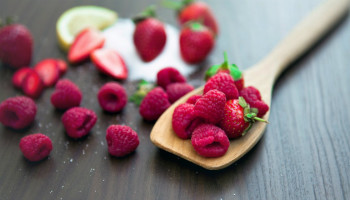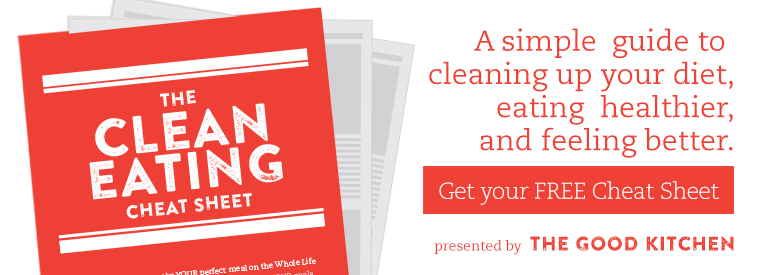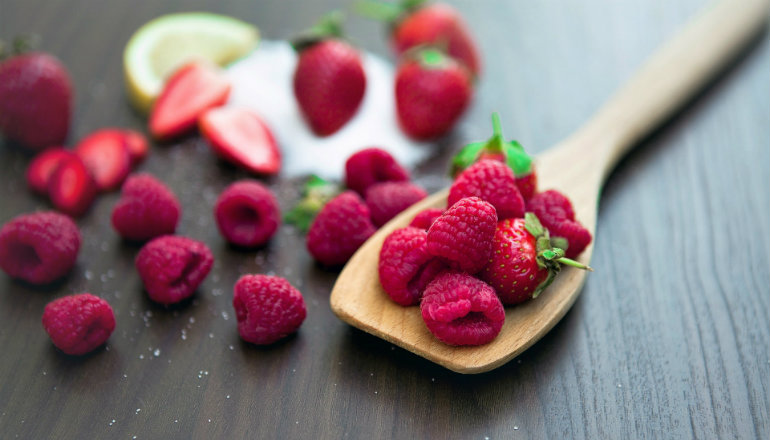 Reading Time: 8 minutes
Reading Time: 8 minutesHow can you use the new WLC Off-Season to get the most out of the new WLC In-Season?
If you just came off the most recent Challenge, how can you maintain your progress while still enjoying yourself?
If you are playing the upcoming Challenge for the first time, how can you set a solid foundation for nutritional success while not starting the Challenge early?
And if you’re unsure about the Challenge (but know you need to make a change in how you eat) how do you do that?
Real World Nutrition Strategies
Five years ago, my husband and I were fitness trainers, and we helped our gym run nutrition challenges. We educated and assisted people in tracking the right foods to put in their bodies to fuel their health and fitness.
We loved seeing the tremendous results our people realized by getting their nutrition dialed in during the duration of that challenge. We were also crestfallen with what we saw at the conclusion of some of those challenges.
People struggled to maintain the progress they made. They struggled to maintain consistent habits when faced with the crushing pressures or their “normal” lives. Many often lost the hard-won progress they had made.
The solution we came up with to overcome this problem was two-fold:
- Educate people on three simple nutrition strategies they could use when they reached the end of a challenge. We wanted them to have simple principles to guide their decisions about food.
- Start cooking food for people and sending it home with them. They had listened to us and had heard our message. Now they were trusting us to feed them well.
The three nutrition strategies we taught are just as relevant now as they were then. They are timeless and can guide you along no matter where you are in your fitness journey. So, let’s talk about these strategies in more details.
Because whether you’re in the WLC Off-Season, are returning from a long layoff, or aren’t even thinking about doing a Challenge, the following strategies can help you make long-term progress when it comes to your nutrition.
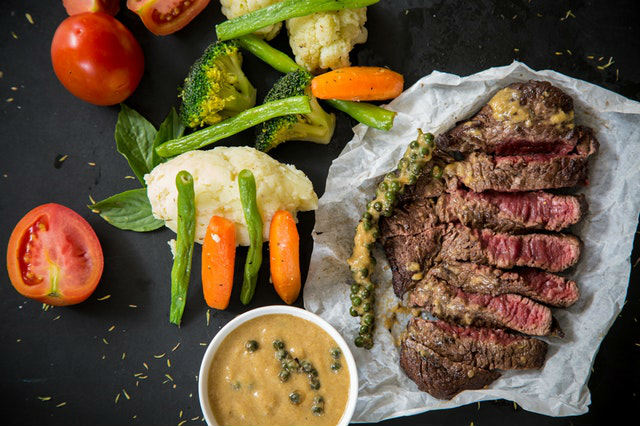
Strategy #1: Eat Wholesome, Minimally Processed Foods
If you are more mindful about where your food comes from and what happens to it before it reaches your plate, you can control calories without specifically counting or being overly restrictive.
By choosing to eat whole, minimally processed foods you can naturally:
- Lose weight – Whole fruits, vegetables, and grains are less calorie dense. Think about it: a cup of fresh sliced apples (57 calories) vs. a cup of applesauce (166 calories). One cup raw spinach (7 calories) vs. one cup creamed spinach (89 calories). And one cup of whole wheat flour (407 calories) vs one cup white flour (455 calories).
- Nourish your body – The same thing holds true for vitamins and minerals. Fresh spinach has five times the vitamin A and seven times the vitamin C of creamed spinach.
- Reduce inflammation – Eating less processed foods can reduce over-active inflammatory pathways in your body that lead to chronic joint pain, chronic health issues, and fatigue.
- Alleviate allergies – Eating more wholesome foods reduces the number of potential allergens entering your body that may be contributing to skin, digestive, or immune issues.
- Have more energy – Wholesome foods can help maintain steady blood sugars by avoiding the spikes and crashes associated with more heavily processed foods.
An easy method to guide your grocery shopping for these foods is to stay on the perimeter of the grocery store. This is typically where you find the produce, deli, and freezer sections. The interior of the grocery store is where you tend to find the most highly processed and enriched food products, so limit your selection from this area.
Pick foods that are close to their natural forms:
- Pick fresh fruits and vegetables that are still intact or have been freshly sliced. Avoid industrially processed and canned items with added sugars, fats, and preservatives. Frozen fruits and vegetables are a great option if they have no added ingredients.
- Select from whole cuts of meat that have been refrigerated or frozen. Avoid heavily processed and cured meat products. Steer clear of meat products that are breaded or have sauces added to them.
- If you are going to consume higher carbohydrate items like bread or tortilla products, select from whole grain options that also have a higher fiber content. Limit or stay away from baked goods with highly refined white flours. Beans (black, red, pinto, etc.) are another good carb source with a ton of fiber packed in. Breakfast cereals, desserts, snack foods — all of these are best consumed in small amounts if at all.
- When selecting oils and fat sources, stay away from hydrogenated and heavily processed oils such as soy, corn, or canola. Pick from pressed oils such as olive, coconut, or sesame. Nuts and nut butters are another great option as long as you don’t have an allergy.
Watch this video for a more detailed discussion about nutrition strategies that support long-term health:
Strategy #2: Pay Attention to Sourcing
Wholesome, minimally processed foods are a great place to start. To take it a step further, look at where your food comes from and the journey it took your plate.
I believe the quality of your food has as much impact on your well-being as the quantity. That is why I’m obsessed with quality sourcing, because I believe “you are what you eat eats.” If what you consume was fed a terrible and unnatural diet or was grown under terrible conditions, it will manifest one step up the food chain (in you).
When I look for protein and meat sources, I look for the following criteria in each item:
- Grass-fed/grass-finished beef
- Pasture-raised chicken
- Pasture raised pork
- Wild-caught fish and seafood
- Cage-free or pasture-raised eggs
When it comes to produce, it might surprise you that I don’t always recommend that people buy organically grown fruits and vegetables. The type of produce and how it’s normally grown greatly influence the potential pesticide residues associated with each. Two handy guides I recommend are the Dirty Dozen and the Clean Fifteen lists from the Environmental Working Group.
If a food is on the Dirty Dozen list, I always select the organic version to limit my pesticide exposure. If it’s on the Clean Fifteen list, I don’t worry about buying organic. The foods on that list are either grown with few pesticides or have an outer layer that protects the edible portion from absorbing those pesticides.
A direct way to ensure quality sourcing of whole food items is to shop at your local farmer’s market. You can talk to the individual producers about how they raise their livestock or grow their produce to see if they meet the above criteria. You may even be able to visit their farm to check things out for yourself.
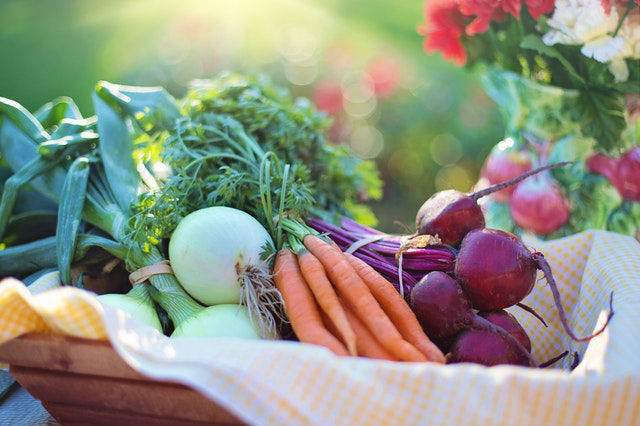
Strategy #3: Kick Up Your Heels, But Be an Adult
When you reach the end of the Whole Life Challenge, be careful about how you enter the Off-Season. You want to kick up your heels a bit while still maintaining your progress. But too many times I see people celebrate the end of a Challenge by going on an all-out binge where they eat all the foods and drink all the things they denied themselves. While that is satisfying in the very short term, these people usually pay for their behavior the next day in the form of an alcohol or food hangover.
Instead, pay special attention to gradually re-introducing items that you may have cut out during the Challenge. Your body might not react well to a sudden influx of dairy, wheat, or sugar. You may have an allergic reaction, trigger a bout of inflammation, or suddenly retain water. This is a sign these items weren’t very good for you in the first place and you may need to always limit or avoid them.
With that being said, it’s your Off-Season and you should enjoy your life. Partake in the foods and drinks you love but be sensible and practice moderation. You don’t need to eat a whole cake or drink a whole bottle of wine to find enjoyment. Think about how much you need to really savor something and stick with that.
Additionally, try not to combine multiple indulgence items. You can have your cake, or your ice cream, or your wine. But try not to combine all three in the same sitting. The subsequent guilt (and not-so-great feelings in your body) might not be worth all that indulgence.
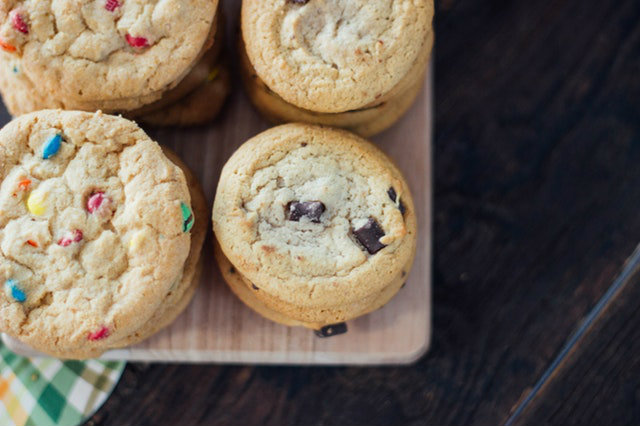
Own Your Off-Season
One of my favorite sayings is: “Don’t let being perfect get in the way of being good.” You don’t have to be perfect, you just have to be good. During the Off-Season (and the rest of your life) you can eat foods that are naturally nourishing for your body and mind. But you can also indulge in treats and foods you enjoy without feeling guilty. You just have to find your balance.
If you are looking for long term success, you would be well served by alternating cycles of striving with recovery. Two steps forward, one step back. This way you can push your boundaries and make progress, then consolidate and recover for your next adventure. Not building in dedicated recovery can lead to exhaustion and failure, as your body and mind rebel against the constant grind.
I want to see you be successful in every cycle of the Challenge that you do, both the In-Season and the Off-Season. As you progress through each, you’ll develop your ability to focus in the In-Season as well as exercise confidence and self-control in the Off-Season.
We all need simple, practical strategies we can fall back on when we’re not striving or when things aren’t going as planned. Simple principles that you can maintain for the rest of your life. These three nutrition strategies will help you do just that.
